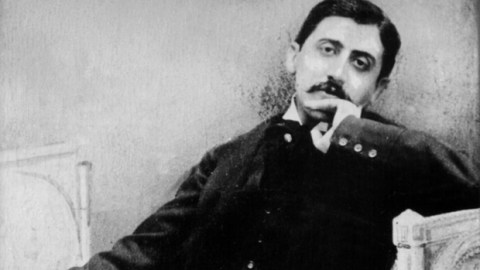Waking Up and Falling Asleep with Proust

One of the most wonderful things about Proust is he is a details person. He recognizes levels of sensitivity that most of us register, but we don’t give them any time. Proust’s novel opens up with the description of someone falling asleep. Now, it’s something we do every night. Do we ever pay attention to it? No. And yet, Proust spends a good 50 pages describing how our personalities fragment and eventually disintegrate as we fall asleep. But that process of falling asleep, which we normally devote one sentence to, is actually a miraculous process.
He follows this up with a 100-page description of waking up. And again, the miracle, the complexity, the reassembling of the self that every day takes place under that bland, cliché, “I woke up.” And, you know, that’s only the beginning of a constant process of attending to the minor, and in a way, giving us a feeling of what it means to be properly alive.
Some people say, “I went white water rafting in Canada and I felt alive” or “I went to Thailand and I felt alive.” Proust’s lesson is, “I lay in bed, and by looking at things properly, I felt properly alive.”
In Their Own Words is recorded in Big Think’s studio.
Image courtesy of Shutterstock





